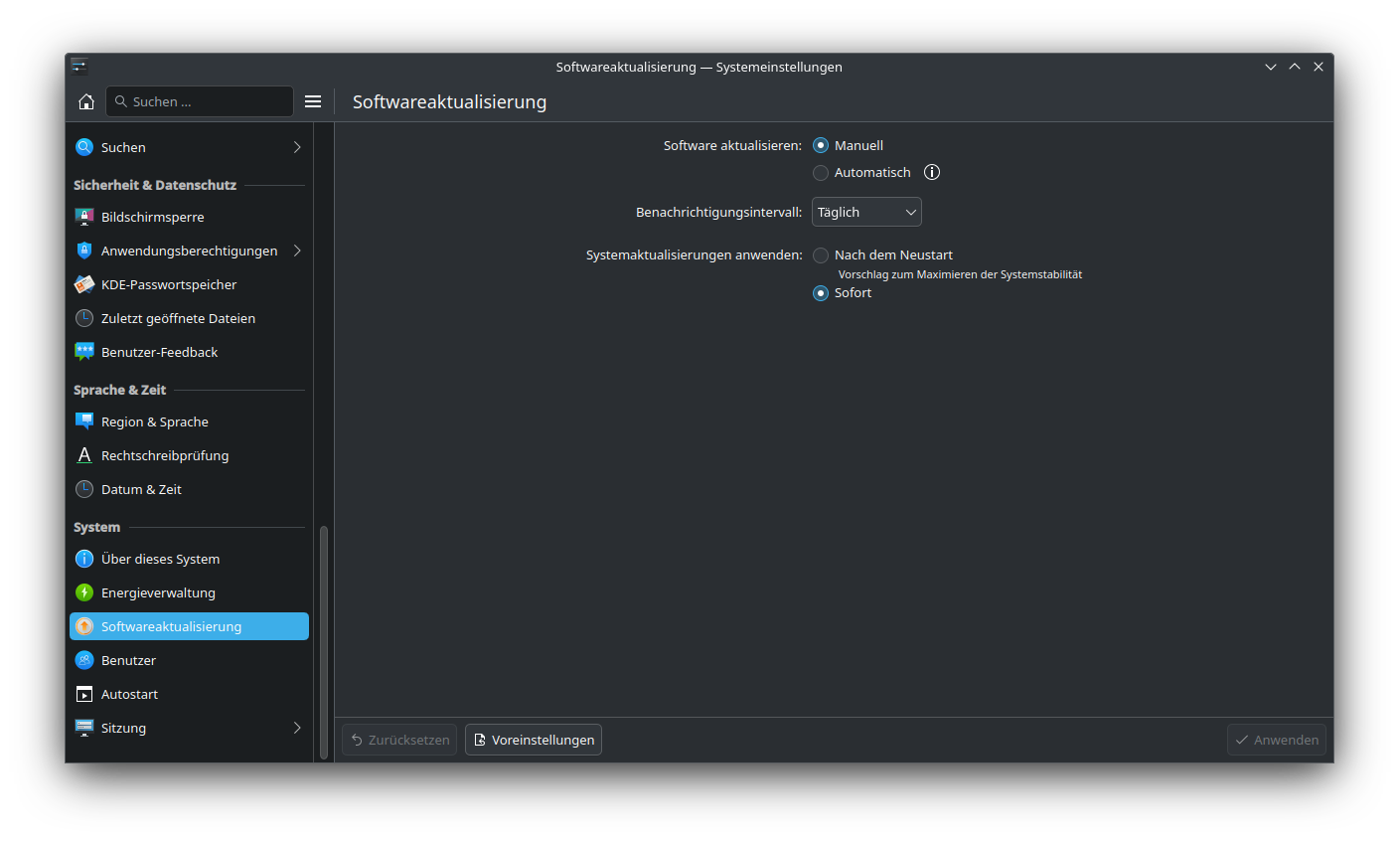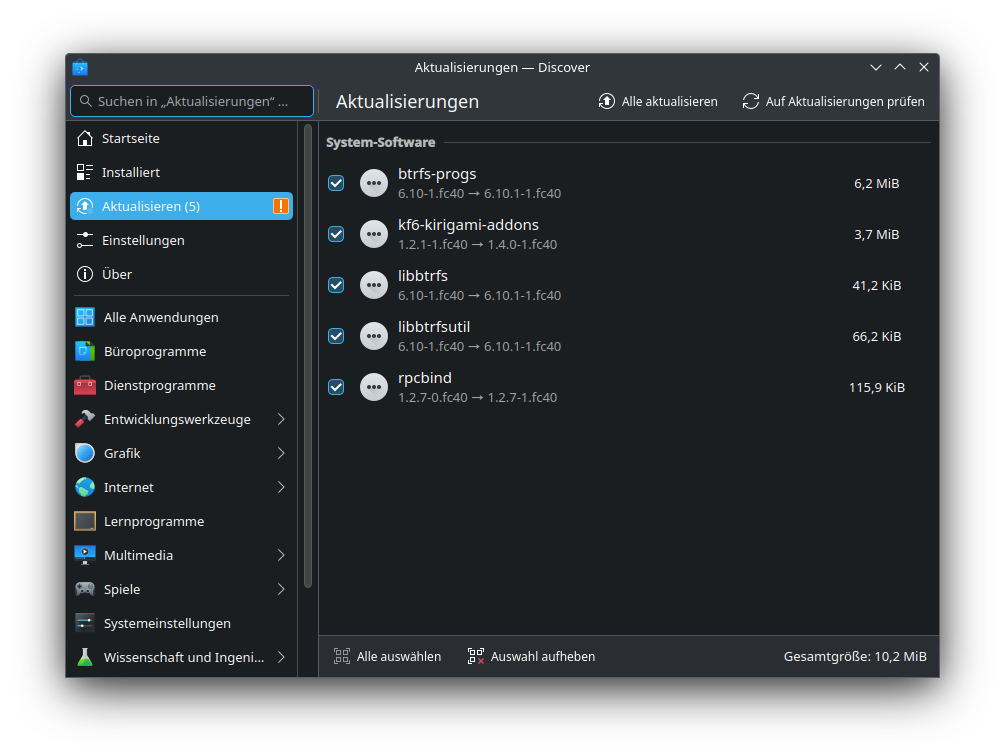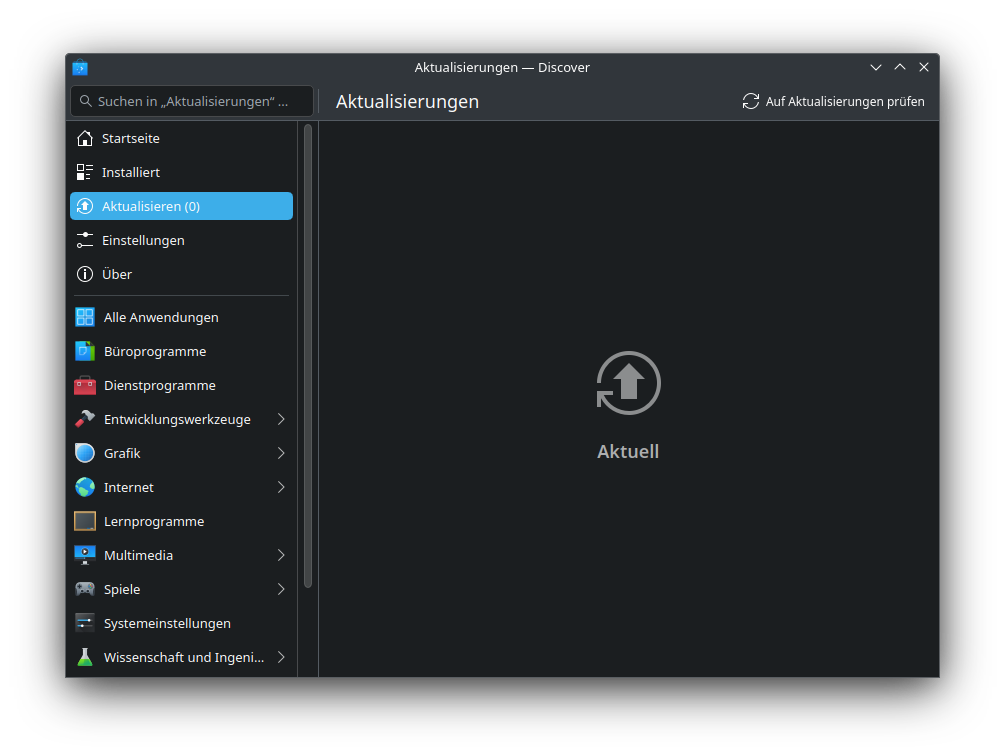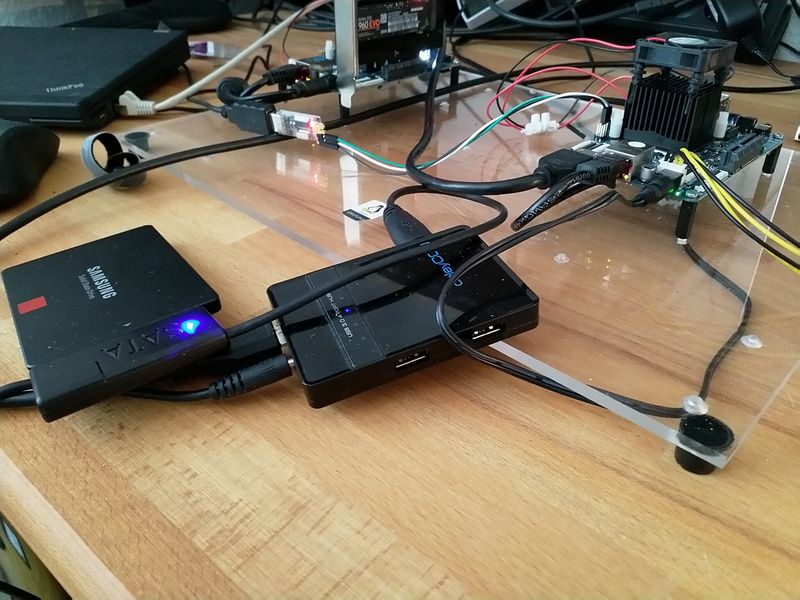Fedora 40 - Updates
-
Ich habe ja bei meinen Tests zu Fedora 40 KDE Plasma immer über dieses komische Update System rum genörgelt, was mich massiv an M$ erinnert. Wenn man das nicht wegbekäme, wäre das ein Blocker für mich. So was käme mir nicht auf die Platte. Aber, Linux ist ja sehr flexibel. Ich habe dann mal in den KDE Settings gesucht.

Da ist die Einstellung. Neustart erforderlich, erst dann wird es übernommen. Danach sieht das dann bei Updates gewohnt aus


Nach der Aktualisierung, dann so wie immer.

Yeah
Für Menschen, die keine Nerds sind, ist die erste Methode vermutlich die bessere Option. Für mich steht sie leider ein wenig im Weg. Ich mag keine Reboots, die sind bei mir selten. Ja, wenn es einen neuen Kernel gibt wird auch mal durchgestartet, aber so gefällt es mir besser.
-
-
-
-
-
-
-
-
Ubuntu Bionic - IP Adresse ändern
Angeheftet Verschoben Linux


